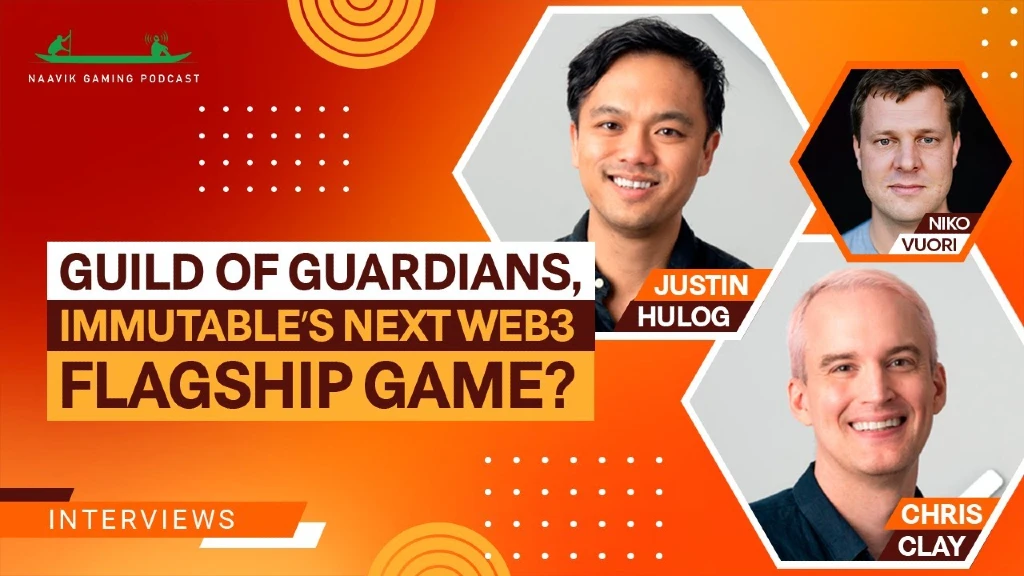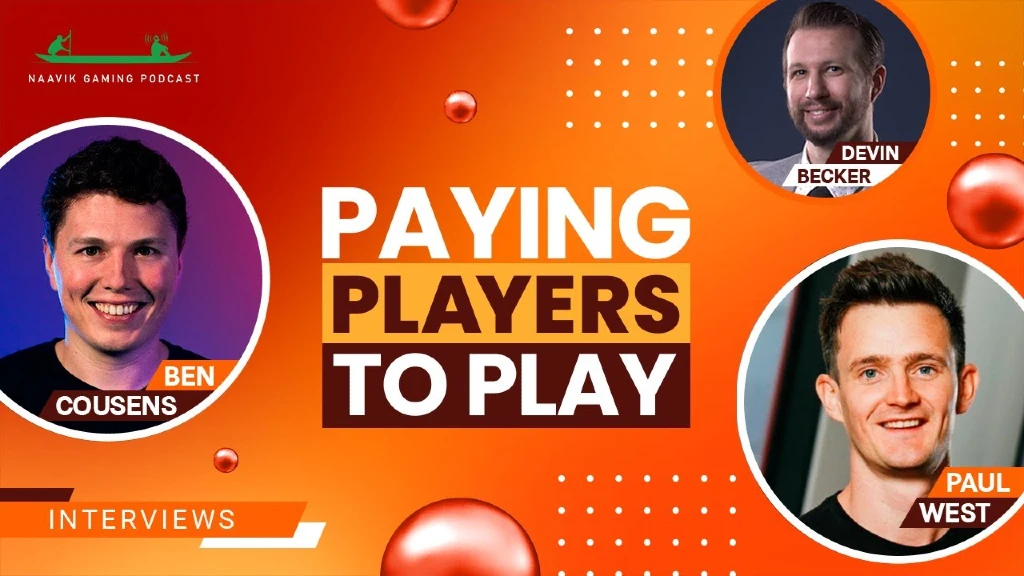We recently sat down with Robby Yung, CEO of Animoca Brands, a blockchain-focused game publisher responsible for creating, investing, and distributing titles like The Sandbox, Crazy Kings, and Crazy Defense Heroes. In this conversation, Metacast host Nico Vereecke chats with Robby about the biggest advantages of Blockchain in games, the future of Blockchain Gaming, and Animoca’s strategy & value proposition. Check the full audio and video version of the interview below!
What is Animoca Brands?
- Been involved in games for ~20 years, originally created PC + console games
- During the dawn of mobile games in 2009, Animoca founder (Yat Siu) sold prev. enterprise business to focus solely on Animoca - acted primarily as mobile + casual F2P studio
- One key strategy was partnering with brands to create original games featuring their IP
- Acquired Pixowl (who had a similar partnership strategy) - and went on to build The Sandbox
- In 2017, partnered with Axiom Zen while they were working on a hackathon project - ended up becoming CryptoKitties, and Animoca became the publisher of CryptoKitties in greater China
- Animoca now focuses solely on creating games and entertainment on the cutting edge of blockchain implementation
Biggest Advantages of Blockchain in Games
Blockchain presents an opportunity to participate in an entertainment ecosystem that’s much more fair to the player - it democratizes access to games + entertainment
Most exciting to Robbie : Idea that when gamers spend money in games, they don’t lose it all
- Similar to the now-ancient idea of reselling game cartridges, or old consoles
- Blockchain ownership adds a built-in secondhand market for digital items
- Fundamental difference in player’s perspective when they can retain some residual value back from their games. Getting $1 back is a lot better than the current model : getting $0
Player-owned economies :
- In the past, games have had a limited lifespan because developers will stop supporting games when they’re bored or it’s not economical anymore
- Player governance puts the community first - allows them to even vote in new dev team to continue maintaining and iterating the game in perpetuity
- Is it realistic? - Very realistic for successful games, because they will have the financial and community power to do so. (LoL, WoW, etc. have lots of economic volume and die-hard fanbase behind them already)
Potential for interoperability + composability :
“ The fact that you can bring content around from environment to environment will become so natural over time, that people will wonder how they ever experienced games as single-player environments in the past. “
Future of Gaming with Blockchain?
All of gaming will have some sort of crypto-layer embedded - will cease to be a “feature” and instead just be accepted as a part of games
- The mechanics of using blockchain will recede further into UX design
- Wallets, exchanges on/off-ramps will evolve to be more user-friendly
- Pace of progress within these platforms and tools is astounding... last two years as example and mainstream attention has only sped these forces up
Future of Free to Play + Blockchain?
- Lots of experimentation already happening, biggest one on keeping a F2P community + blockchain community interested in the same game economy
- Biggest challenge is to figure out how to onboard traditional gamers into these economies
- Ex: One of Animoca’s child company’s GAMEE is offering blockchain-based rewards as prizes for their suite of traditional games through more traditional incentives such as leaderboards
- Blockchain-based rewards are spendable on robot parts for collectibles, or for use in a more mid-core game
- Onboarding strategy is to interest players through a more casual experience, and then interest them in blockchain ecosystem through crypto rewards
Animoca’s Business Strategy
Very much believe in an open + multi-chain competitive ecosystem environment
- Success of blockchain comes from idea of open + composable assets
- Aligns with investment strategy to support projects across ecosystem, regardless of chain, type of dev environment
Majority investments :
- Growing game studio business by acquisition of strong teams + studios
Minority investments :
- Investment in companies + teams that are building great games
- Web2 companies that Animoca can partner with to assist them into Web3
- Ecosystem investments into the “picks & shovels” of crypto - layer 1 chains, layer 2 scaling solutions, wallets, etc.
Animoca Value Proposition
Different representation vs. traditional investors because Animoca actually builds games
- Understand challenges of traditional games making their way into blockchain
- Can refer portfolio companies to their child game projects because they have a lot of active experience across different blockchain tools (Polygon, Solana, Immutable, etc.)
On Interoperability
- Constant struggle to build interoperability between all of Animoca’s brands
- Biggest challenge is building content portability between different environments
- Interoperability takes a lot of thought and energy i.e. game balance and visuals for different IP in The Sandbox
- Too early that most projects are still trying to get their own projects together first
Rapid-Fire Q’s
Would you rather build only on Ethereum & Layer 2’s + side-chains or on other chains ?
Ethereum — All the liquidity and market is currently there...while the technology may not be the best right now, want to invest where the customer-base is
Why is Web3 important to the future of games and the future of the Internet ?
Democratizing access and giving financial inclusion — blockchain has the lowest barrier to entry compared to any other tech, because it has finance baked in
Potential for P2E/P&E in blockchain games as the future of work ?
As people spend more time in virtual worlds, there will be greater number of complex jobs that are more analogous to real work in the real traditional world, i.e. real estate developer
Digital Property Rights and IP ?
Need to think about it within context of intellectual property and copyright law that currently exists. Ownership of an item and ownership of it’s IP are two different things — i.e. a car model
Digital Property Rights and IP ?
Need to think about it within context of intellectual property and copyright law that currently exists. Ownership of an item and ownership of it’s IP are two different things — i.e. a car model








